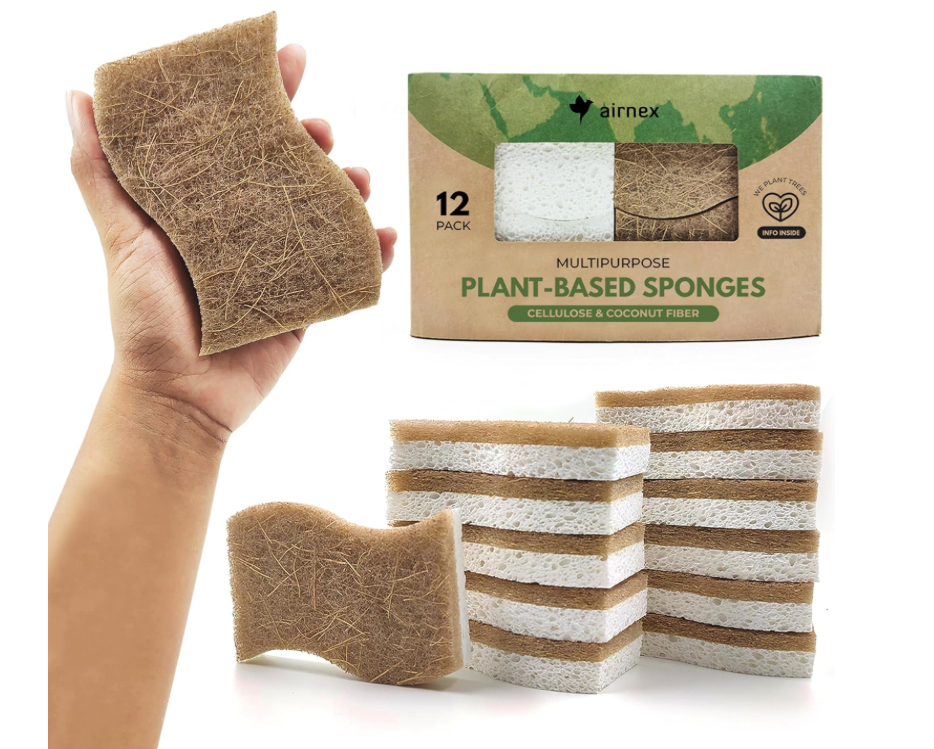Switching to energy-efficient appliances is one of the most impactful ways to create a more sustainable home. Traditional appliances consume significant amounts of electricity and water, which not only leads to higher energy bills but also increases household carbon footprints. By choosing energy-efficient models, you can conserve resources, reduce utility costs, and contribute to a healthier planet. This guide highlights the best energy-efficient appliances for a sustainable home, from refrigerators to lighting, helping you make eco-friendly choices that benefit both your wallet and the environment.
Why Energy-Efficient Appliances Matter
Many conventional appliances consume excessive energy and water, contributing to greenhouse gas emissions and resource depletion. Energy-efficient appliances, designed with advanced technology and sustainable materials, consume less power and water, making them a smarter choice for environmentally conscious households. Not only do these appliances reduce carbon emissions, but they also lower energy bills, making them cost-effective in the long term.
Energy-efficient appliances often carry certifications like ENERGY STAR, which guarantees they meet strict efficiency standards. By investing in these appliances, you’re supporting sustainability while ensuring high performance and reliability for years to come. Let’s dive into some of the best energy-efficient appliances available today.
1. Energy-Saving Refrigerators
Refrigerators are one of the biggest energy consumers in any household, as they run continuously. Energy-efficient refrigerators are designed to minimize power usage without compromising cooling performance. Features such as improved insulation, inverter compressors, and optimized cooling systems allow these models to use significantly less electricity than standard refrigerators.
Benefits of Energy-Saving Refrigerators
- Reduced electricity consumption, helping lower monthly utility bills.
- Minimized greenhouse gas emissions from lower energy use.
- Extended lifespan due to advanced compressors and insulation materials.
Recommended Products
For an energy-efficient option, consider the LG InstaView Door-in-Door Refrigerator, which is ENERGY STAR certified and includes innovative features that reduce cold air loss. Another great choice is the Samsung Family Hub Refrigerator, which allows you to manage food and energy usage via a smart interface, making it both eco-friendly and high-tech.
2. High-Efficiency Washing Machines
High-efficiency washing machines are designed to use less water and energy compared to traditional models. These washers often feature advanced sensors that adjust water levels based on load size, as well as powerful spin cycles that reduce drying time. By using less water and energy, high-efficiency washing machines are a sustainable option for reducing household utility costs and conserving resources.

Benefits of High-Efficiency Washing Machines
- Uses significantly less water per load, reducing water bills.
- Requires less energy to heat water and operate, lowering electricity usage.
- Gentler on clothes, extending their lifespan and maintaining fabric quality.
Recommended Products
The Whirlpool WTW5000DW Top Load Washer is an excellent high-efficiency option, with automatic water level adjustment and ENERGY STAR certification. Another top choice is the LG WM3900HBA Front Load Washer, known for its turbo-wash technology, which reduces wash time and energy consumption while delivering powerful cleaning performance.
3. Energy-Efficient Dishwashers
Energy-efficient dishwashers use less water and electricity per cycle compared to older models, helping conserve resources and reduce utility costs. These dishwashers often include features like soil sensors, which adjust the wash cycle based on how dirty the dishes are, and quick-dry functions that reduce energy usage.
Benefits of Energy-Efficient Dishwashers
- Consumes less water per load, lowering overall household water use.
- Reduces electricity consumption, helping to lower utility bills.
- Quieter operation due to advanced insulation and motor designs.
Recommended Products
The Bosch 300 Series Dishwasher is a popular energy-efficient model with features like EcoSilence technology and a quick-dry function. Another top option is the KitchenAid KDTE334GPS Dishwasher, which is ENERGY STAR certified and includes soil sensors to optimize each cycle, saving water and energy without compromising cleanliness.
4. Induction Cooktops for Efficient Cooking
Induction cooktops offer a highly efficient alternative to traditional gas or electric stovetops. Using electromagnetic fields, induction cooktops heat pots and pans directly, resulting in faster heating and reduced energy consumption. They also provide precise temperature control, which helps prevent energy waste during cooking. Induction cooktops are ideal for those looking to reduce energy usage in the kitchen.
Benefits of Induction Cooktops
- Heats food faster, reducing cooking times and energy consumption.
- Precise temperature control allows for efficient, waste-free cooking.
- Surface remains cool to the touch, enhancing safety in the kitchen.
Recommended Products
The GE Profile PHP9036SJSS Induction Cooktop is a top choice, featuring rapid heating and energy-efficient operation. For a portable option, the Duxtop 9600LS Portable Induction Cooktop is compact and energy-efficient, perfect for smaller spaces or as an additional cooking surface.

5. Smart Thermostats for Energy Management
Smart thermostats are an effective way to manage energy use in your home by adjusting heating and cooling settings based on occupancy and weather conditions. Many smart thermostats learn your preferences over time, creating customized schedules that keep your home comfortable while minimizing energy waste. These devices allow you to control temperatures remotely, so you can make adjustments even when you’re away from home.
Benefits of Smart Thermostats
- Reduces heating and cooling costs by adjusting to daily routines and weather.
- Remote access allows for easy temperature control from anywhere.
- Promotes energy savings by learning and optimizing temperature settings over time.
Recommended Products
The Google Nest Learning Thermostat is a leading smart thermostat known for its intuitive learning capabilities and energy-saving features. Another excellent option is the Ecobee SmartThermostat, which integrates with smart home systems and provides room-specific temperature control for greater efficiency.

For a closer look at how artificial intelligence is reshaping energy efficiency, check out our guide on Smart Thermostats: How AI is Revolutionizing Home Energy Use. Discover how these innovative devices can lower energy bills and enhance comfort.
6. Low-Energy Air Conditioners and Heaters
Air conditioning and heating units are often among the highest energy consumers in a home. Low-energy air conditioners and heaters are designed to provide efficient temperature control without excessive power usage. Many of these units are equipped with energy-saving modes, programmable timers, and advanced insulation to reduce the need for constant operation, saving both energy and money.
Benefits of Low-Energy Air Conditioners and Heaters
- Uses less electricity, lowering monthly utility bills and reducing carbon footprint.
- Improved temperature control and energy-saving settings help optimize energy usage.
- Reduced greenhouse gas emissions, contributing to a healthier environment.
Recommended Products
For an energy-efficient air conditioner, consider the Frigidaire FFRE0833S1, an ENERGY STAR certified window unit with customizable cooling settings. For heating, the Dyson Pure Hot+Cool is a versatile, low-energy solution that provides both heating and cooling along with air purification for an all-in-one approach to comfort.

7. Solar-Powered Water Heaters
Solar-powered water heaters are a sustainable solution for households looking to reduce reliance on electricity or gas for heating water. These systems use solar panels to absorb sunlight, converting it into energy that heats the water. Solar water heaters are particularly effective in sunny regions and can significantly reduce utility costs over time. They are an excellent investment for those aiming to make their homes more energy-efficient and eco-friendly.
Benefits of Solar-Powered Water Heaters
- Uses renewable solar energy, reducing dependence on fossil fuels and electricity.
- Can lower water heating costs by up to 50% depending on sunlight availability.
- Long-lasting and eco-friendly, contributing to a sustainable home energy solution.
Recommended Products
The Rheem SolPak Solar Water Heating System is a reliable option for efficient solar water heating, offering impressive performance and durability. For a more compact choice, the SunHeater Solar Heating System is designed to provide supplementary heating, helping to reduce traditional water heating costs.

8. Energy-Efficient Lighting Options
Lighting accounts for a significant portion of household energy use, and switching to energy-efficient lighting options, such as LED or smart bulbs, is a simple way to reduce electricity consumption. LED lights use up to 80% less energy than traditional incandescent bulbs and last much longer, reducing waste. Smart lighting options, which allow for customizable settings and scheduling, add convenience and energy savings to any home.
Benefits of Energy-Efficient Lighting
- Consumes less energy, reducing electricity bills and environmental impact.
- Longer lifespan means less frequent replacements, decreasing waste.
- Smart lighting options provide flexibility, remote control, and scheduling.
Recommended Products
For LED bulbs, the Philips Hue Smart LED Bulbs offer energy efficiency along with smart home integration for customizable lighting. The GE LED Bright Stik is another excellent option, providing long-lasting light with minimal energy usage.
How to Choose the Right Energy-Efficient Appliances
When choosing energy-efficient appliances, look for certifications such as ENERGY STAR, which indicates that the product meets high energy-saving standards. Check the appliance’s Energy Guide label for details on estimated yearly energy usage, helping you compare different models based on efficiency. Additionally, consider features such as programmable settings, timers, and eco-modes, which allow for more efficient operation.
Another factor to consider is appliance size; select the appropriate size for your household needs to avoid unnecessary energy consumption. Investing in energy-efficient appliances may involve a higher upfront cost, but the savings on energy bills and reduced environmental impact make them worthwhile investments in the long run.
For insights into how technology is making home management more efficient, explore our article on AI-Powered Apps for Smarter Home Management. Learn how these innovative tools can simplify your daily tasks and optimize your home’s functionality.
Conclusion
Switching to energy-efficient appliances is a practical and impactful way to create a sustainable home. From high-efficiency washing machines to solar-powered water heaters, these appliances offer numerous benefits, including lower energy costs, reduced water usage, and minimized carbon footprints. By investing in eco-friendly appliances, you’re not only enhancing your home’s sustainability but also contributing to a healthier planet.
As technology continues to advance, energy-efficient options are becoming more accessible and affordable. Consider replacing outdated appliances with energy-saving models over time, as this gradual shift will have a lasting positive impact on both your finances and the environment. Sustainable living starts with conscious choices, and upgrading to energy-efficient appliances is a significant step toward a greener future.
Ready to upgrade your home with energy-efficient appliances? Start with one or two essential items and gradually build a more sustainable setup. Do you already have a favorite energy-efficient appliance? Share it in the comments below, and subscribe to our newsletter for more tips on sustainable living and eco-friendly home solutions!





















Comments 2